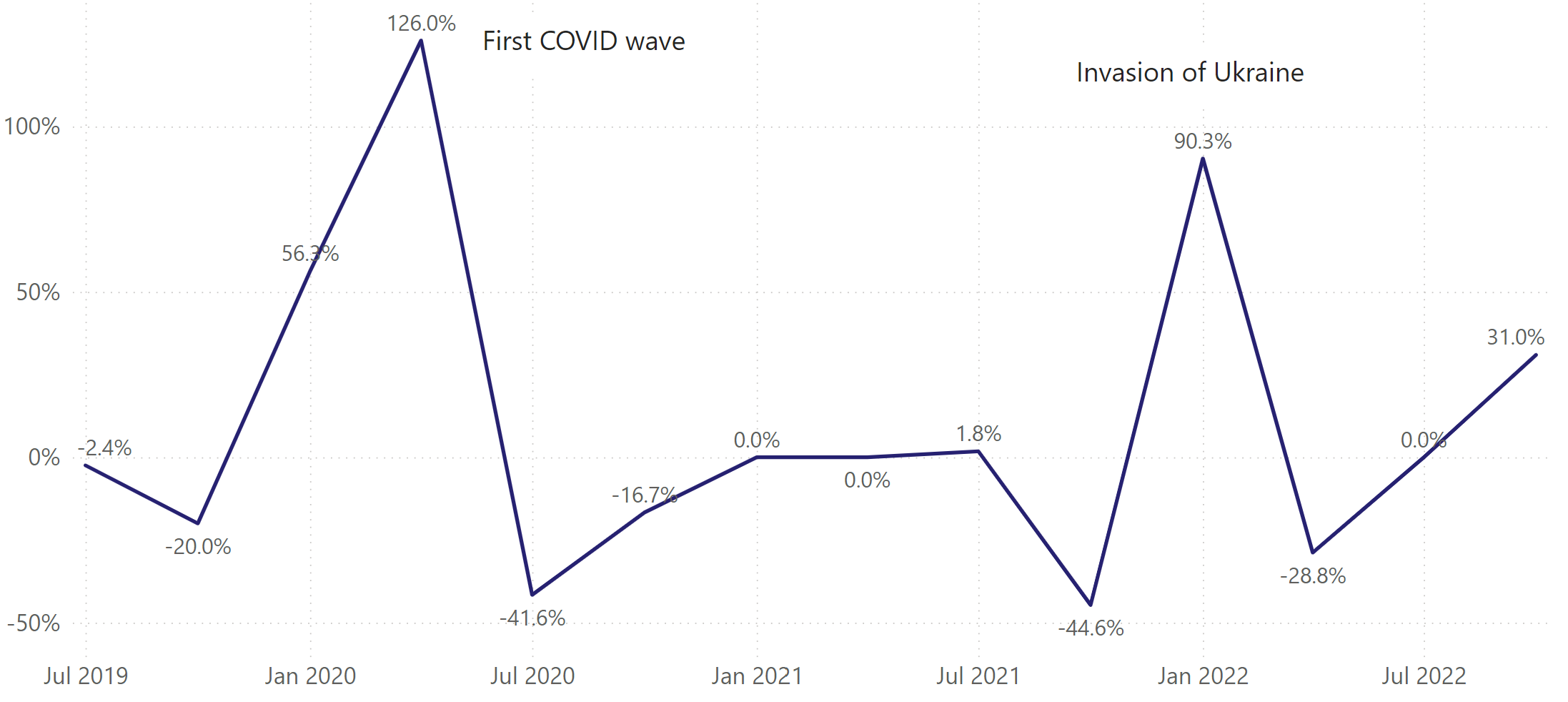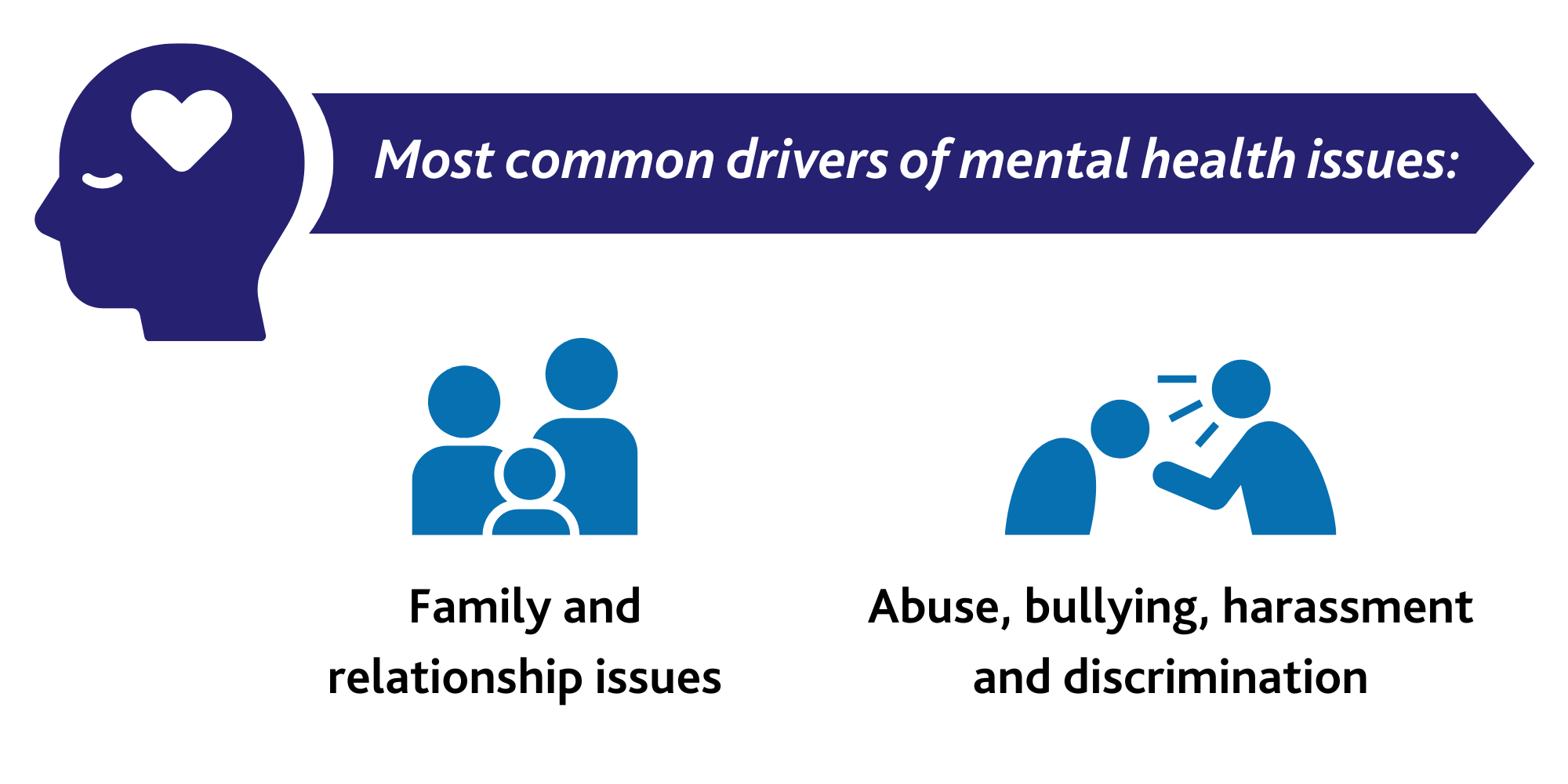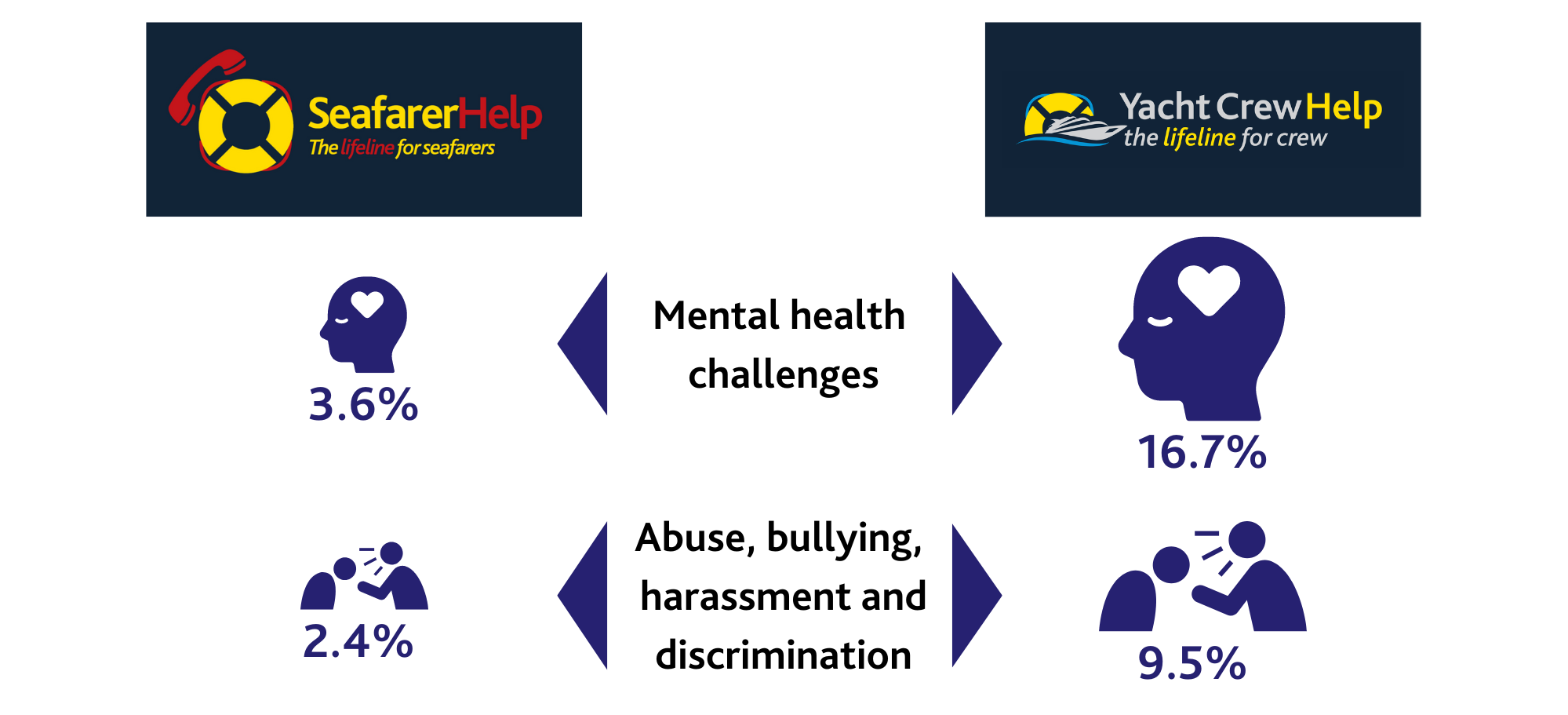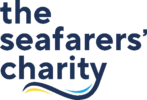In response to a lack of information about seafarer welfare, we are using data from ISWAN's helplines to provide insights into the evolving challenges faced by seafarers.
The stressors that seafarers must manage as part of their job are well known: long periods of separation from loved ones, physically demanding and at times hazardous work, increasingly heavy workloads and, in recent years, fewer opportunities for shore leave are just some of the factors that make seafaring an extremely challenging vocation. As a result of this unique combination of stress factors, numerous studies have consistently found that mental health issues are significantly higher among seafarers than the general population. For example, a 2022 study by Marine Benefits found that 28% of seafarers are experiencing depression and 24% anxiety, while between half and two thirds of seafarers are highly stressed, depending on rank.
In recent years, awareness has grown about the significant impact of psychological wellbeing on both physical health and safety culture in a maritime context. The growing maritime recruitment and retention crisis, which is seeing increasing numbers of seafarers seek alternative careers at shore, is also bringing the issue of seafarer wellbeing to the fore. Despite this, as Lloyd’s Register Foundation’s 2022 report on seafarer wellbeing points out, there is a lack of comprehensive data about the issue.
Providing seafarers with the emotional and practical support that they need will always be at the core of ISWAN’s work. However, in response to the lack of robust data about seafarer welfare, in recent months we have developed a new project to make greater use of helpline data to identify key trends, develop potential solutions and advocate more effectively for change within the maritime sector.
ISWAN’s helplines give us real-time insights into the evolving challenges that seafarers face, including mental or physical health issues, experiences of abuse, bullying, harassment or discrimination (ABHD), contractual issues or maritime incidents or accidents. The often profound impact of major global events on seafarers is clearly evident in our helpline data. For example, in the second quarter of 2020, new calls and messages to SeafarerHelp relating to mental health issues increased by 126.0% quarter-on-quarter (q-o-q), as the crew change crisis hit during the first wave of the COVID-19 outbreak. Subsequently, new contacts relating to mental health concerns surged by 90.3% q-o-q in the first quarter of 2022, in large part as a result of the Russian invasion of Ukraine (see Figure 1).
Analysis of ISWAN’s helpline data is also providing insights into how the issues that seafarers raise relate to one another. As highlighted in ISWAN’s latest quarterly infographic, in the second quarter of 2023 we registered a 36.9% increase across all helplines in new contacts relating to mental health difficulties. Further analysis of this data demonstrated that family or relationship issues was the factor that seafarers raised most frequently in relation to psychological difficulties – seafarers shared with our helpline officers the stress that long periods of separation place on relationships, as well as the often acute sense of anxiety and helpless that they felt in the face of a severe illness or crisis at home. Experiences of abuse, bullying, harassment or discrimination was the second most common issue that cooccurred with mental health difficulties. Seafarers turned to ISWAN for support with complex and often highly distressing situations, including discrimination based on sexuality or religion as well as bullying by senior officers (see Figure 2).
These data insights are informing ISWAN’s development of new projects to address the key challenges that seafarers are raising with us. Over the coming months, we will be launching a new workshop to support seafarers’ family members to cope with the emotional and practical demands of having a loved one away at sea. We are also developing a project to build the evidence base around the prevalence of abuse, bullying, harassment and discrimination at sea and to strengthen the specialist support that is available for survivors.
Our data project is, furthermore, providing a stronger evidence base of the different challenges facing seafarers working in different parts of the maritime sector. Over the past two years, ISWAN has been receiving a growing number of calls from seafarers working aboard superyachts following the launch of our specialist helpline, Yacht Crew Help, which was established in response to a lack of accessible, specialised support available to help those working in the superyacht industry. Our recently published first annual review of data from Yacht Crew Help underlined the clear differences that are emerging between the issues raised by yacht crew as opposed to those contacting SeafarerHelp, which is more generally accessed by seafarers from the merchant shipping industry.
Data for 2022 from Yacht Crew Help shows that a higher proportion of yacht crew raised issues relating to mental health challenges, unpaid wages and experiences of abuse, bullying, harassment and discrimination, including sexual assault and harassment, than seafarers contacting SeafarerHelp (see Figure 3). This indicates the specific challenges facing crew in the yachting industry, as well as the less well-developed infrastructure of support and guidance that is available, in comparison to merchant shipping.
Across both SeafarerHelp and Yacht Crew Help, there is a marked difference between the issues raised by women in comparison to men (see Figure 4).
Perhaps most strikingly, in 2022, experiences of abuse, bullying, harassment and discrimination accounted for a substantially higher proportion of calls among women, at 16.4% of all issues raised by women to SeafarerHelp, in comparison to 3.2% of issues raised by men. Amongst those contacting Yacht Crew Help, mental health issues accounted for 13.5% of issues raised by women, as opposed to 5.8% of issues raised by men. This disparity once again highlights the specific challenges faced by women seafarers and the need for structural change to ensure that maritime offers a safe working environment for all.
Data intelligence is already enabling ISWAN to more effectively identify the key issues affecting seafarers and to use these insights to plan our future activities. We are, however, committed to continuing to strengthen our capacity to make use of our helpline data and are grateful to the recent award of a grant by Lloyd’s Register Foundation to support us do this. The funding will allow us to develop a new and more detailed framework for categorising the issues that seafarers raise, enabling us to carry out more granular analysis of trends affecting seafarer welfare. We will also be working towards providing more comprehensive analysis of the challenges faced by different groups of seafarers, including those of different ages, nationalities or flying under different flags. Furthermore, support from Lloyd’s Register Foundation will enable us to make live data dashboards available to ISWAN members and to the broader maritime sector, providing a new source of information that we hope will provide an impetus for more concerted and informed action to improve seafarer welfare.








